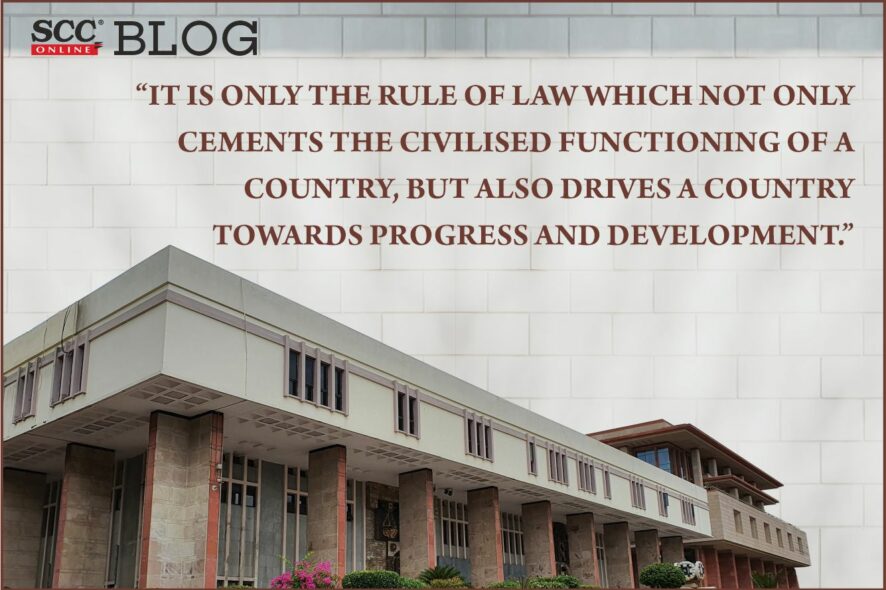Delhi High Court: Expressing that, attempts to circumvent or undermine judicial decisions need to be viewed seriously in order to ensure that the functioning of our country is unhindered, especially during turbulent times, Subramonium Prasad, J., held that,
“It is only the rule of law which not only cements the civilised functioning of a country, but also drives a country towards progress and development.”
The instant contempt petition had been filed for initiating contempt proceedings against respondent 1 for violating the undertaking given to the Court.
In a suit for possession, permanent injunction and for mesne profit/damages was filed against the respondent by Badri Prakash Soni, who was the father of the petitioner and respondent 1.
The parties who were related to each other entered into a compromise and under the said compromise, the respondents Munish Soni and Piyush Soni agreed to hand over the ground floor of the premises to the petitioner.
Apart from the above said, the defendants were made to pay a sum of Rs 1 Crore under the said compromise.
After a relinquishment deed was executed by Vikas Soni in favour of the petitioner, the petitioner got the premises in question converted into freehold by paying conversion charges to DDA and a conveyance deed was registered in favour of the petitioner by the DDA.
The present contempt petition was filed as the respondents did not vacate the premises.
Analysis, Law and Decision
Supreme Court has repeatedly held that all decrees and orders are executable under the CPC, including consent decrees and orders, but merely because an order or decree is executable, it would not take away the jurisdiction of the Court to deal with the matter under the Contempt of Courts Act, 1971.
In the instant matter, the respondents had given an undertaking that they would positively hand over the physical vacant possession of the ground floor of the property, but they did not do so.
High Court was concerned with upholding the majesty of the law and the undertaking given to this Court to vacate the ground floor of the premises.
“The underlying purpose of the law of contempt is meant to serve public interest and build confidence in the judicial process. This flows from how the functioning of a democratic society is sustained by the rule of law and wilful violation of the same would enable anarchy.”
In the Supreme Court’s decision of Vinay Chandra, In Re., (1995) 2 SCC 584, Court had delineated the purpose of the law of contempt in building confidence in the judicial process.
Elaborating further, the High Court added that the process of due course of administration of justice must remain unimpaired. Adding to this, the Bench stated that,
“…it is the duty of the Court to take a strict view when there is non-compliance of an Order of the Courts, and Courts should not hesitate in wielding the sword of contempt when grappling with a situation pertaining to wilful disobedience.”
Court did not appreciate the defences raised by the respondents to subvert the authority of the Courts.
Therefore, the respondents were guilty of the contempt of Court. [Navin Soni v. Munish Soni, 2022 SCC OnLine Del 1161, decided on 26-4-2022]
Advocates before the Court:
For the Petitioner:
Mr. Vikas Arora, Ms. Radhika Arora, Mr. Mohit Dagar and Mr. Siddharth Singh, Mr. Ayush Kumar, Advocates
For the Respondents:
Mr. Varinder Kumar Sharma, Mr. Akshay Soni, Advocates







